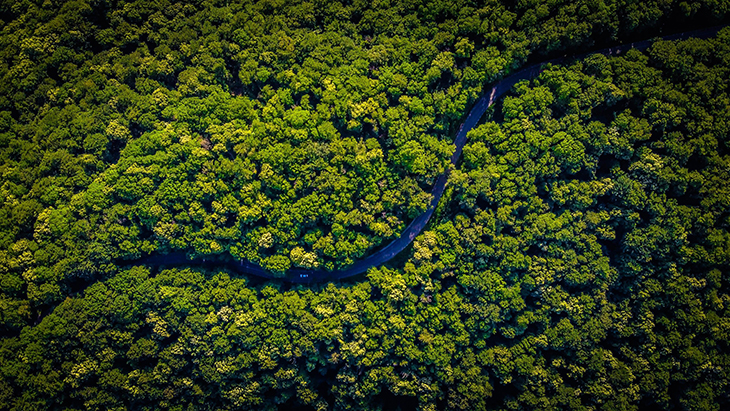
In the wake of Colombia’s historic shift toward a left-wing presidential administration, dedicated to securing a lasting peace agreement with the socialist FARC rebels, a remarkable transformation has taken root in the country’s forests. This transformation is vividly evident through a substantial 26% reduction in deforestation rates within the conflict-ridden regions.
These verdant expanses, which encompass both the Amazon rainforest and distinct, self-contained ecosystems, have borne the brunt of Colombia’s protracted civil strife. The ravages of war have inflicted severe harm upon these rich and biodiverse rainforests over time.
Nonetheless, under the leadership of President Gustavo Petro, an empathetic and ecologically conscious approach is guiding the peace negotiations. These deliberations engage with nearly 20 splinter factions that have emerged from the former FARC guerilla group. Astonishingly, the response from these factions has been one of receptivity and cooperation.
The region that has been a focal point of conflict and deforestation, the forested state of Gauviare, is experiencing an unprecedented shift in its de facto governance. Here, a self-imposed moratorium on deforestation has been established, a direct outcome of the evolving peace talks. This commitment has yielded astounding outcomes, resulting in the preservation of approximately 50,000 hectares of irreplaceable rainforest.
“This is really dramatic,” conservationist Rodrigo Botero said to The Guardian. “It’s the highest reduction in deforestation and forest fires that there has been in two decades.”
The peace negotiations were recently reported on by The Guardian, who highlighted the involvement of a Norwegian delegation, featuring Norway’s environment minister, Espen Barth Eide.
“What I’m hearing, seeing, and feeling in these meetings is that there is an enhanced understanding that you cannot build a new Colombia on the basis of the further deterioration of nature, so you have to find an economic, social, political, inclusive process that is more respectful towards nature than before,” Barth said to the English paper.
Frequently overlooked in comparison to its neighboring country Brazil, Colombia holds the distinction of being the second-most biodiverse nation globally and stands out as the leader in terms of bird diversity.
Ranked 25th globally for its Forest Integrity Index score (8.26), Colombia takes pride in its extensive expanse of largely undisturbed forests, which is twice the size of the less preserved forest areas. These remarkable forests are predominantly situated in regions marked by conflicts, namely Amazonia, Caquetá, and Putumayo.
Should the Petro administration effectively curb the transformation of forests into grazing lands for livestock, it would contribute significantly to the preservation of one of the planet’s most invaluable tropical forest ecosystems.
As for Colombia’s pursuit of peace, which is underpinned by a commitment to environmental integrity, this stands as a testament to the positive potential that harmonizing socio-political progress with ecological mindfulness can be achieved. The newfound trajectory of the nation’s forests showcases the power of diplomacy and strategic governance in safeguarding invaluable natural resources for generations to come.
What are your thoughts? Please comment below and share this news!
True Activist / Report a typo


